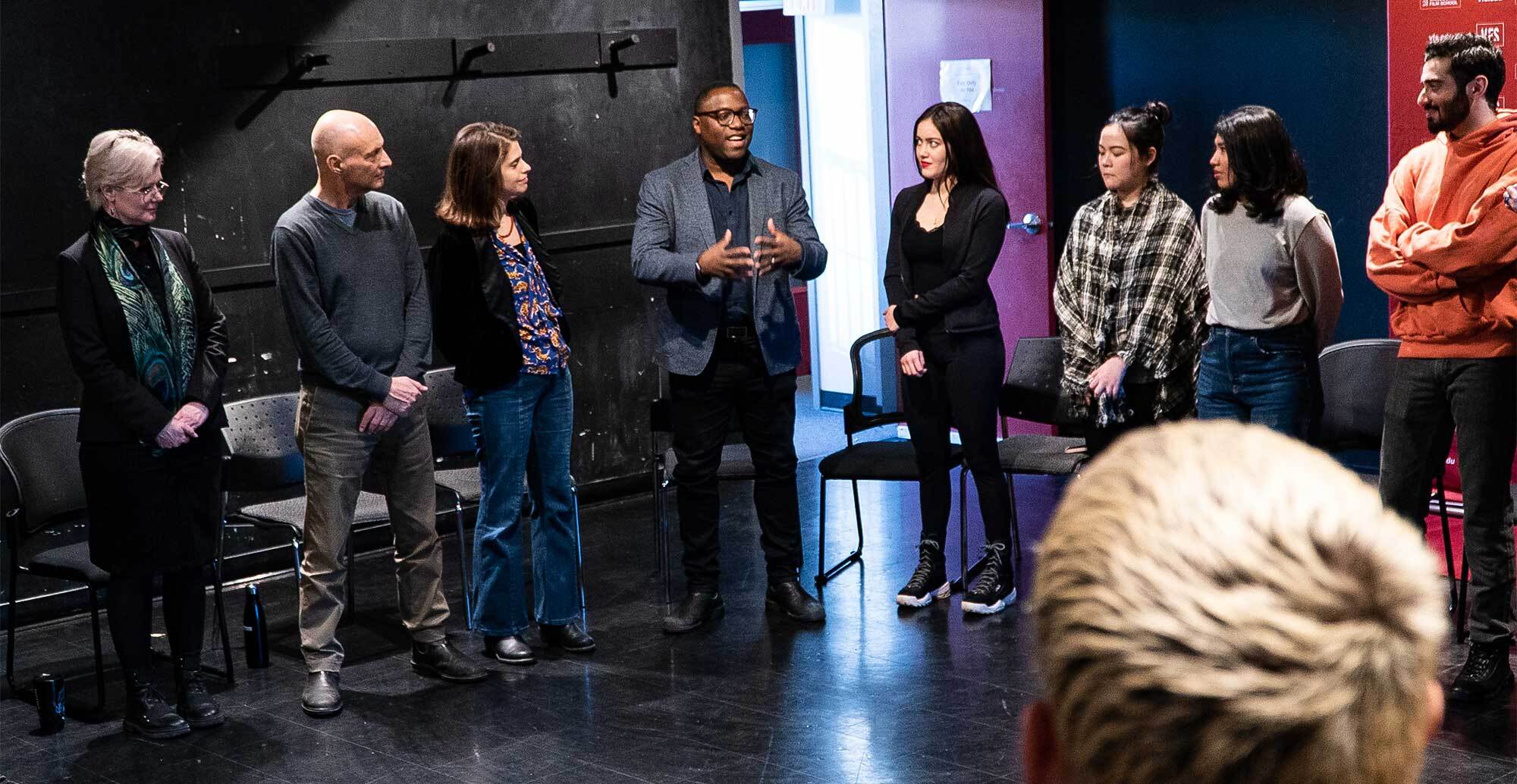It’s been hard to avoid the news of the ongoing labour disputes rocking the film industry right now. With all the uncertainty and conflicting messages going around, we asked Omari Newton, VFS’s Head of Acting for Film & Television, for his perspective on the strikes.
For context, strikes by the Writer’s Guild of America (WGA) have paused productions for the last 99 days, and they were recently joined in strike actions by the actor’s union (SAG-AFTRA.)
Omari Newton is an award-winning professional actor, writer, director, producer, and TedX speaker. Omari’s work includes a recurring role as Black Panther in various Marvel animated projects, the role of Lucas Ingram on Showcase’s Continuum, and as fan favourite Corvus in Netflix’s The Dragon Prince. As a playwright, he created Redbone Coonhound with his wife, Amy Lee Lavoie, as well as Sal Capone: The Lamentable Tragedy Of. Omari joined the Acting for Film & Television program as an instructor in 2015, and was named head of department earlier this year.
For those who don’t know, what’s at stake in these strikes?
The two primary issues at stake in the strikes are residuals and the fear of increased reliance on AI instead of actors. In the old model, actors were paid a union negotiated amount up front, and would then receive residual payments once a project had aired. The amount actors got paid was dictated by how many markets a project continued to be played in. In broad strokes, the more places and times a project aired, the more actors would make in residuals. The new streaming model severely undercuts the old model. Streaming services are quite secretive about how many streams a project gets, or how many countries a project is being streamed in. As a result, they are able to justify paying a pittance to actors on the back end.
 Omari, centre, addressing VFS faculty and students.
Omari, centre, addressing VFS faculty and students.What about AI? We’ve heard a lot of concern around tools like ChatGPT being used replace to screenwriting jobs, but less about acting roles.
The issue with AI is that studios allegedly wanted the right to record an actors image, and then re-use it in perpetuity throughout the universe. This would significantly reduce the number of days on set that a background actor would work, and in turn reduces their paycheque dramatically. Less days on set for fewer actors would also mean less work for crew members, many of whom have been traditionally hired to feed, dress, light and or put makeup on actors.
When many people think of actors, the image that comes to mind is of wealthy megastars. What’s the reality for most actors?
The reality is, most actors earn wages that would rank them below the poverty line if they only relied on money from acting to pay their bills. Most actors, however, are hard working and resilient. They juggle side hustles, full-time jobs and often share small living spaces in order to make things work.
How does what’s happening in the US affect actors in Canada and around the world?
Hollywood truly is the primary hub when it comes to filmmaking, especially if you live in Canada or the USA. A large number of projects that shoot in places like Vancouver are American films. A slowdown in production in LA will mean a slowdown for the entire North American industry and beyond.
 Omari voices the fan favourite character Corvus in The Dragon Prince.
Omari voices the fan favourite character Corvus in The Dragon Prince.Why should people working in the other sectors of the entertainment industry take notice of what’s happening right now?
Technology is a double edged sword. While technological advances have enhanced our lives in many ways, they also risk rendering many professions obsolete. Studios have made it clear that any cost cutting measures that can be facilitated through the use of technology will be implemented, with very little regard of how this may negatively impact workers’ wages and or opportunities.
A big thank you Omari for taking some time out of his busy schedule to shed some light on the ongoing labour disputes.
VFS prides itself on preparing students for the realities of their respective industry. A core component in the final terms of Acting for Film & Television program are classes aimed at teaching students the business side of acting, including working with agents, navigating the industry, and approaching their craft as an entrepreneur. These skills remain essential for today’s film industry.
If you’re interested a career in front of the screen, VFS is ready to teach you everything you need to thrive in this industry.
